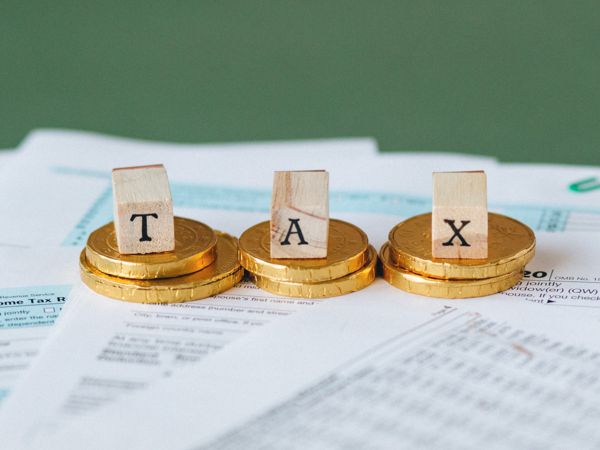
Uncle Sam Wants To Help Buyers Of New & Used Machinery
Machinery plays a vital role in our economy, powering industries from agriculture to construction and beyond. It helps us produce food, build infrastructure, transport goods, and maintain efficient operations. Investments in machinery are key drivers of productivity and economic growth.
Recognizing the importance of capital investments, Congress has implemented tax incentives to support businesses. One such incentive is bonus depreciation, which encourages companies to invest in new or used equipment by allowing them to deduct a large portion of the asset's cost upfront.
Bonus depreciation is especially beneficial for businesses that rely on heavy machinery. By reducing taxable income in the year of purchase, it can improve cash flow and support long-term growth strategies.
What Types Of Purchases Qualify For Bonus Depreciation?
According to current IRS guidelines, bonus depreciation applies to tangible personal property with a recovery period of 20 years or less. This includes most types of heavy machinery like tractors, excavators, cranes, forklifts, and more. The rule also covers used machinery, provided it was not previously owned by the buyer.
However, not all purchases qualify. Real estate improvements, land, and certain types of vehicles do not count. Additionally, farm equipment has its own set of rules, with some items having a shorter recovery period than others.
How Is Bonus Depreciation Calculated?
Depreciation is the process of allocating the cost of an asset over its useful life. Taxpayers can use different methods, including straight-line or accelerated depreciation. Bonus depreciation allows businesses to deduct a larger percentage of the asset’s value in the first year.
In 2021, the full 100% of the qualifying asset’s cost can be deducted. This makes it easier for businesses to manage their tax liabilities while investing in new equipment. It’s often recommended to combine this with Section 179 deductions for maximum benefit.
What Is Bonus Depreciation In 2021?
As of now, the bonus depreciation rate is 100%, meaning businesses can write off the entire cost of eligible assets in the year they’re purchased. This rate is scheduled to decrease over time, but future legislation could extend or modify it.
Here's a breakdown of the bonus depreciation rates over the years:
| Year |
Bonus Depreciation
Deduction |
| 2017 | 100% |
| 2018 | 100% |
| 2019 | 100% |
| 2020 | 100% |
| 2021 | 100% |
| 2022 | 100% |
| 2023 | 100% |
| 2024 | 80% |
| 2025 | 60% |
| 2026 | 40% |
| 2027 | 20% |
| 2028+ | 0% |
Examples Of Bonus Depreciation For New & Used Machinery Purchases
Example 1: You buy a used mini excavator for $25,000. Since you didn’t own it before and it’s used for business, you can deduct the full amount in the first year.
Example 2: A new attachment worth $3,000 for your machine qualifies for bonus depreciation as well.
Example 3: If you buy a lawn tractor for personal use, it won’t qualify for bonus depreciation.
Example 4: If you already used Section 179 to cover the cost of a machine, you can't apply bonus depreciation to the same asset.
Example 5: If you choose not to apply bonus depreciation to one truck, you must apply the same rule to all similar trucks bought in the same year.
How Does Bonus Depreciation Work With Section 179?
Section 179 and bonus depreciation both help reduce taxes, but they work differently. Section 179 allows businesses to deduct the full cost of an asset in the year it's purchased, while bonus depreciation allows a percentage of the cost to be written off immediately.
Section 179 has limits, such as a $1.05 million cap in 2021, while bonus depreciation has no limit. Also, Section 179 is treated as an expense, whereas bonus depreciation is applied to capitalized assets.
Combining both can provide the greatest tax savings. Most professionals recommend using Section 179 first, then applying bonus depreciation to the remaining balance.
Important Note
This blog post is for informational purposes only and should not be considered tax advice. Always consult a qualified tax professional for guidance on your specific situation.
Tax laws change frequently, and interpretations may vary. It’s important to stay informed and seek expert advice when making financial decisions related to your business.
Resources
IRS Form 4562 for depreciation
How a business owner got a free truck
Find Similar Articles By Topic
#agriculture #transportation #material handling #construction #taxes
Shanghai Shengduan Trading Co., Ltd. , https://www.shsdchem.com
![<?echo $_SERVER['SERVER_NAME'];?>](/template/twentyseventeen/skin/images/header.jpg)